Khaled al-Jeratli | Hassan Ibrahim
The Autonomous Administration of North and East Syria (AANES), the political umbrella of the Syrian Democratic Forces (SDF), intends to launch trials for members of the Islamic State (IS) after years of the radical group defeat and the intransigence of their countries to return them, without a clear future for their fate.
The SDF chose the city of Ayn al-Arab/Kobani to set up courts there and has repeatedly invited, since mid-June, the media and international organizations to attend these trials.
In view of a number of details related to the possibility of establishing these courts, researchers and legal specialists believe that the SDF does not have the ability to conduct these trials, while others believe that the capabilities allow them to be held, but they question their seriousness.
In this file, Enab Baladi discusses the possibility of holding IS trials, the fate of the convicts, and the states’ stances on trying their citizens in a third country by a de facto authority that is not recognized as a state capable of running institutions.
Why now, Will SDF invest in IS prisoners file?
The Autonomous Administration decided to start bringing its foreign prisoners of IS fighters to trials it described as “public, fair and transparent,” according to a statement it issued on June 10.
The AANES said that it decided to start trying them in accordance with international and local laws related to “terrorism” and in a manner that preserves the rights of the plaintiffs among the victims and their family members.
The Kurdish-run body added that the trial does not mean that the Administration has abandoned its opinion on the need to establish an international tribunal, or of an international nature, for the file of the IS “terrorists.”
The Administration called on the International Coalition to “fight terrorism,” the United Nations, concerned international human rights organizations, and local organizations to “engage positively and provide support during all stages of the trials.”
The file of trials of IS members in SDF-controlled areas is not considered new but rather pops up from time to time. It is moved by the Autonomous Administration with repeated cases of disobedience carried out by prisoners, which the region’s authorities see as a security threat, according to researchers and experts.
Talking about IS prisoners is sometimes used to protest against the bombing of the region and at other times to demand an increase in the support provided to the SDF by the US-led International Coalition.
Dr. Wissam Aldien Aloklah, a specialist in international law, believes that the Autonomous Administration aims, through its latest announcement in this regard, to blackmail the countries of the International Coalition politically and financially, especially since the announcement came in conjunction with the ministerial meeting of the International Coalition to defeat ISIS in Jeddah, Saudi Arabia.
During the same meeting, the International Coalition allocated $601 million to support the Coalition and its partners.
Aloklah told Enab Baladi that the Coalition countries announced the launch of a financial pledge campaign for stability to collect funds for the areas liberated from the IS organization in Iraq and Syria, behind which the SDF aims to blackmail countries with the file of trials of foreign fighters.
He added, “If (SDF) had a real intention to prosecute prisoners in its areas of influence, it would have done so years ago, as it did with other members of Syrian nationality.”
Ibrahim Kaban, Kurdish researcher and director of the Geostrategic Network for Studies, told Enab Baladi that the Autonomous Administration has the right to prosecute the IS organization’s members, especially with the security threats they pose to the region.
Kaban recalled the events of Ghweran prison in the city of al-Hasakah in early 2022 when IS elements rebelled with the support of other elements who came from outside the prison, which necessitated the start of military operations that continued in the region for several days and left hundreds dead and wounded.
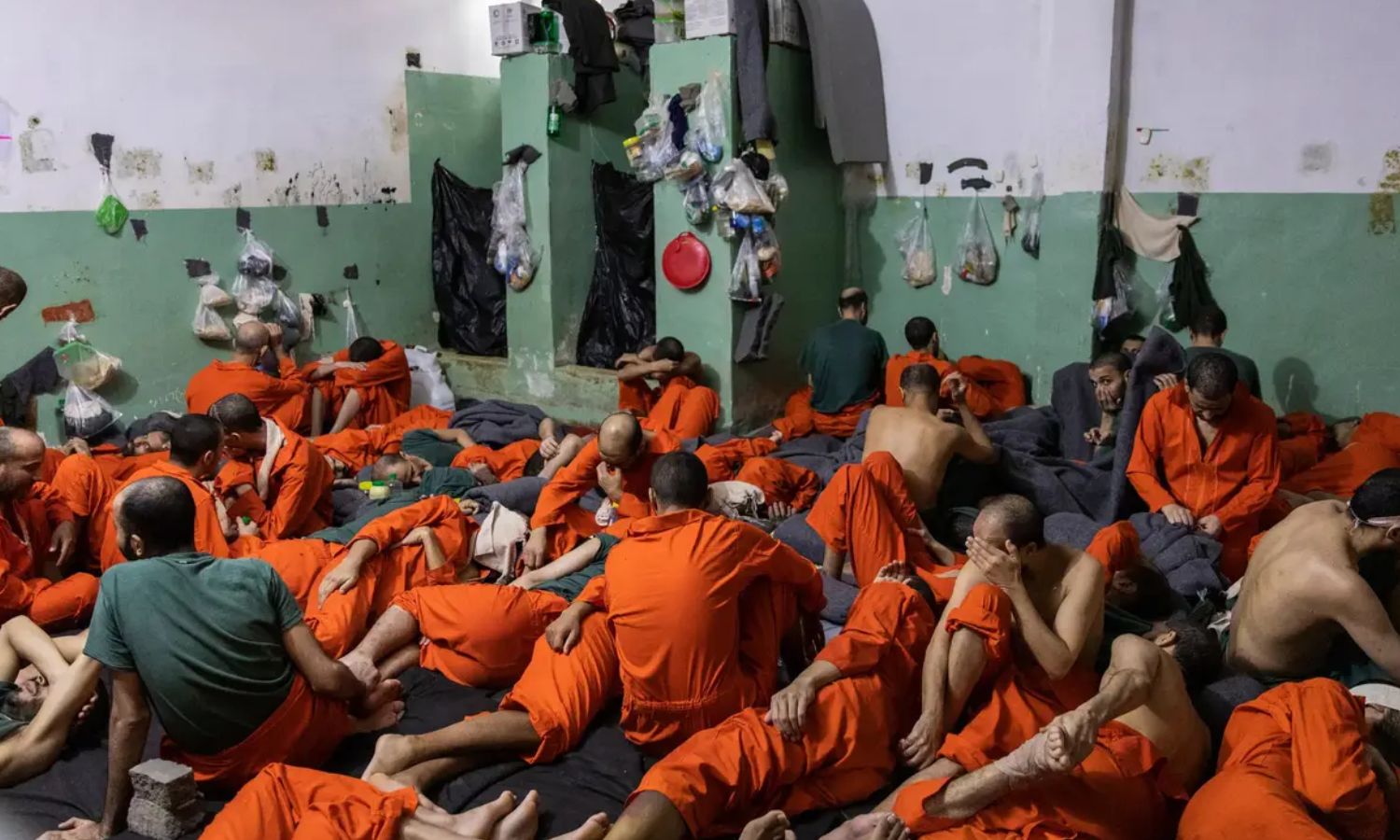
A prison in al-Hasakah where thousands of men are held for being accused of belonging to and fighting with the Islamic State group – 2019 (The New York Times)
|
The announcement of the Coalition countries to launch a financial pledge for stability campaign to raise funds for the areas liberated from the IS organization in Iraq and Syria, behind which (SDF) aims to blackmail countries with the file of trials of foreign elements. Dr. Wissam Aldien Aloklah – Professor specializing in International Law |
Jihadists are a security concern
On January 19, 2022, the streets of the Ghweran neighborhood in the city of al-Hasakah witnessed military confrontations between IS cells, who infiltrated the vicinity of Ghweran prison, which is considered one of the largest prisons containing IS members and leaders, who were arrested by the International Coalition Forces (ICF) in Syria during its military operations between 2017 and 2022.
These confrontations developed as dozens of prisoners were able to cross the prison walls and join the IS cells that were stationed in the neighborhoods surrounding the area, such as the al-Zuhour and al-Maqbar neighborhoods. At the beginning of the confrontations, IS cells used a car bomb, detonating it at the main gate of the prison.
These events, which ended after two weeks of confrontations, were known as the most violent rebellion launched by the IS organization in northeastern Syria to release its members and leaders and left hundreds of IS members and the SDF dead.
Kaban told Enab Baladi that the presence of these elements constitutes a “real security fatigue” in the AANES areas, which was reflected in the events of Ghweran prison in the city of al-Hasakah in 2022.
He added that the residents of the areas that contain these prisons consider that they are sitting on a “time bomb” that may explode at any moment, which really reflects the fears of the residents.
The fears of the residents stem from their previous experiences with the elements of the organization, as happened in the former city of Ain al-Arab/Kobani, when the elements of the IS organization entered the city and committed a massacre in which hundreds of civilians were killed, according to Kaban.
From this standpoint, the Autonomous Administration considers itself compelled to find a solution to the problem of the proliferation of IS fighters in the prisons of the region in light of an uncertain future, as no one knows how long this presence will continue.
Is AANES qualified?
The trials that the Autonomous Administration is planning to hold do not have a legal character, as it does not have a ready-made judicial body that can adjudicate such cases, Mohammad al-Abdallah, Director of Syria Justice and Accountability Center (SJAC), told Enab Baladi.
The rights advocate added that the International inaction rejecting the idea of establishing a court of an international nature, or the international sponsorship of a local court within the authority of the Autonomous Administration, makes it difficult to implement the trials that the AANES is talking about launching.
Trial is the right of the accused
The most important issue is not only the trial of these elements but launching such trials is a “right” matter and one of the rights of the accused, al-Abdallah believes.
However, “what will happen after the sentences issued against them are executed, if one of them is acquitted, for example, or if he is sentenced to years in prison and is released after the end of his sentence, what will happen after that, what will actually be their fate as foreigners whose countries refuse to return them?”
As for the Syrian ex-IS fighters, the situation could be better, but foreigners have a special situation, and the situation of the Iraqis is worse since their extradition to Iraq means death sentences against them, given that the Iraqi government has issued a series of death sentences against a group accused of belonging to the organization under “sham” trials, adds the director of Syria Justice and Accountability Center.
Al-Abdallah believes that conducting trials by the Autonomous Administration is complicated and difficult, and it may be considered a means of political pressure on countries, either to retrieve some of their citizens, or to support the SDF, or to secure funding related to security technology, for example.
Bassam al-Ahmad, Co-Founder and Executive Director of Syrians for Truth and Justice (STJ) does not see the possibility of such trials taking place, as the Autonomous Administration does not have the ability to conduct this type of court on the legal level.
Al-Ahmad said, during an interview with Enab Baladi, that prosecuting members who actually joined the IS organization is not an easy matter, as it requires lengthy investigations, and it can actually be implemented if the “Administration” receives support from European countries or international organizations.
The pro-AANES Hawar Agency, quoting sources in the Administration as saying that the trials will start soon, during which thousands of “terrorists” from 60 countries around the world will be tried, and the “Administration” is working on preparing lists of their names and the accusations against them.
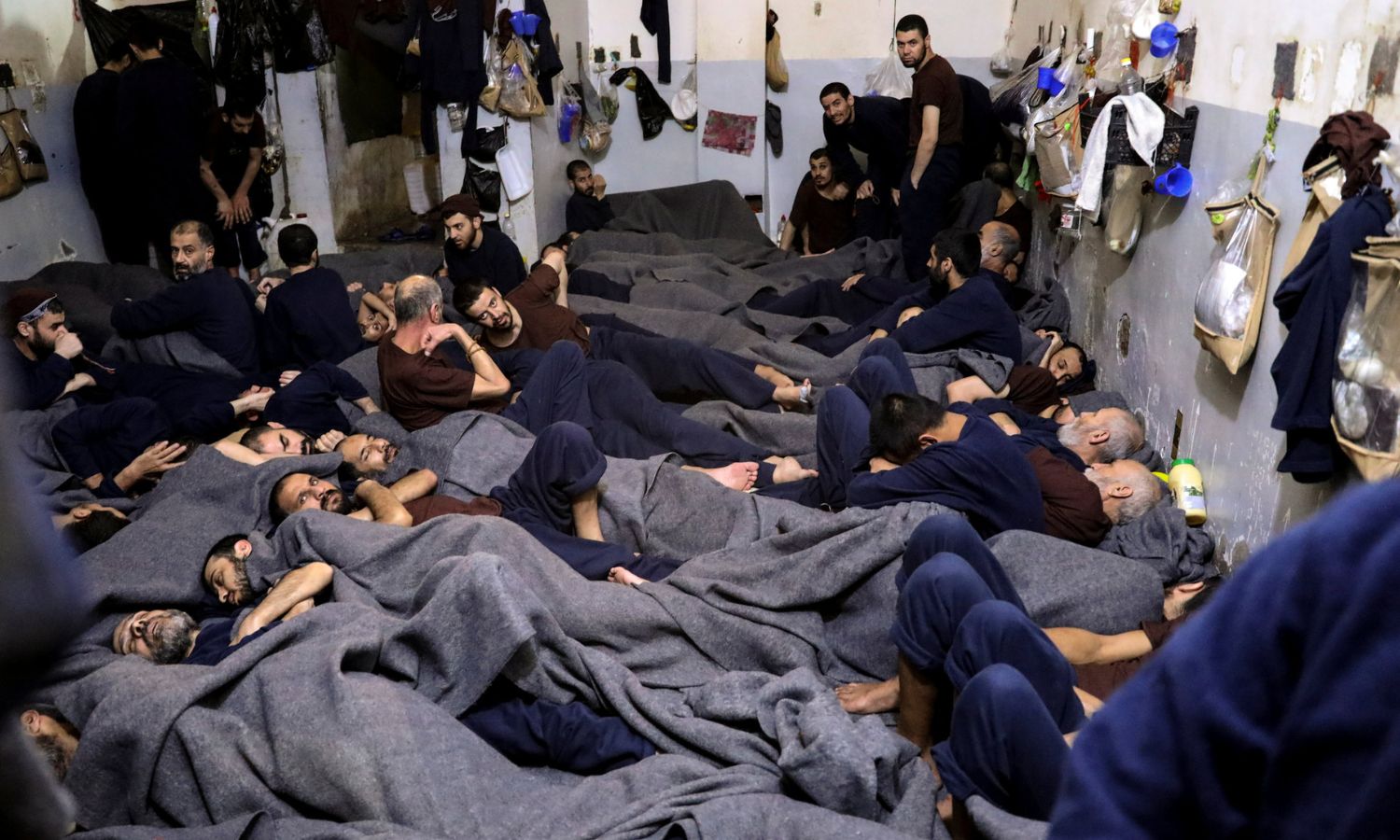
Prisoners suspected of belonging to the Islamic State group in a jail in northeastern al-Hasakah governorate – January 2020 (Reuters/Goran Tomasevic)
|
The Union of Lawyers in the region will play an important role in these trials by appointing a lawyer for each family according to practical requirements without any material costs, and the families of the martyrs outside the region will be able to participate in the trials through lawyers. Hawar Agency |
No recognition of AANES
Mohammad al-Abdallah, Director of Syria Justice and Accountability Center, said that one of the reasons for the inability of the Autonomous Administration to hold this type of trial lies in the problem of its recognition, as it does not have the same status as the Kurdistan region of Iraq, for example, which is officially recognized in the Iraqi constitution by the central government.
Given the lack of this recognition in the local framework, the rulings issued by the Autonomous Administration cannot necessarily be considered acceptable to the Syrian regime in Damascus, and we are talking here about the state itself legally, al-Abdallah asserts.
In view of the status of trials in the current circumstance, their application will constitute “judicial precedents,” as it is possible to see a person who is convicted in one place but innocent in another or who died in one place but is registered as alive in another place, he adds.
Therefore, in general, there is a constant danger, outside the file of IS elements, that there will be two or more parallel jurisdictions.
For his part, Dr. Aloklah, the specialist in international law, believes that international law stipulates that recognized sovereign states are the ones that have the authority to establish courts and administer justice within their territories.
In the case of the trial of foreign elements detained by the SDF, the jurisdiction rests with the courts of the country whose nationality the person holds, or with the courts of the Syrian regime, as the country on whose territory the crime occurred.
Nevertheless, Aloklah believes that countries do not care about the trial of those who hold their nationalities by an unrecognized party, and if they really wanted to prosecute them, they would work to restore them to their lands.
Possibility is available, problem is in the application
The Kurdish expert, Ibrahim Kaban, believes that the possibility of holding this type of trial in the region is available, especially since the Autonomous Administration runs a large area that is considered larger than a country the actual size of Lebanon.
“Thus, the Administration has the ability to conduct trials, especially with the support it receives from many international bodies, led by the United States,” he said.
Kaban believes that the Administration has the right to search for a solution to the problem, which has its roots in the region for years, as long as there is international silence and unwillingness for countries to evacuate their nationals from the region.
In his turn, al-Ahmad, co-founder of Syrians for Truth and Justice (STJ), believes that the implementation of these courts is possible if the Autonomous Administration receives support from the International Coalition that includes more than 70 countries around the world.
He pointed out that talking about the possibility of implementing these trials must be preceded by a question: Are these trials really real, as we are not talking here about “formal trials” like those that take place in various areas of control in Syria, but we are talking about a “fair trial.”
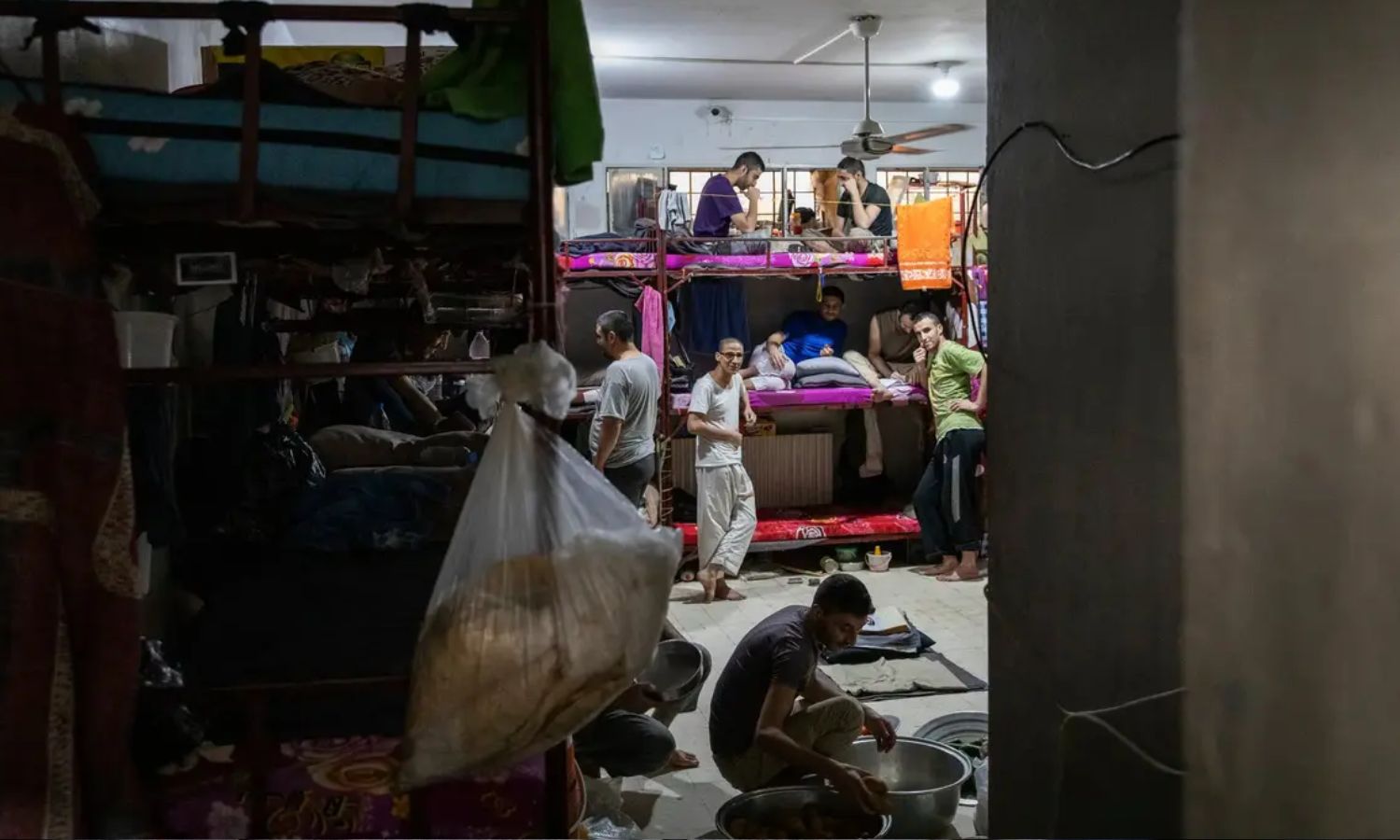
A prison in al-Hasakah where thousands of men are held for being accused of belonging to and fighting with the Islamic State group – 2019 (The New York Times)
International positions
Thousands of captured IS fighters have been languishing in SDF prisons since it took control of areas east of the Euphrates, as the IS organization controlled vast areas before 2017.
Since then, the Autonomous Administration has allocated camps for families of prisoners of different nationalities and prisons for former IS members.
With the recurring discussion of the file of IS prisoners in Syria, the countries from which some of these fighters hailed have no motive to return their citizens from Syria and try them on their territory, or according to their local laws, with the exception of timid cases that some countries have implemented during the past years.
Europe has its caveats
With the passage of years since the defeat of IS, most European countries continue to refuse to take back their nationals from Syria, while other countries have maintained individual initiatives from time to time to recover some individuals from Syria.
France tops the list of European countries that exports the most foreign fighters, according to the European Center for Counterterrorism Studies, as most of them joined the Islamic State, and their number is estimated at 1,200 people, most of whom fought in Syria.
The French government took many actions and measures “for their return,” but security concerns prompted the French authorities to insist on refusing to consider “the mass return of French terrorists and their families detained in Syria.”
As for Britain, about 400 out of about 900 “jihadists” who hold British nationality returned to it.
Ultimately, London believes that foreign fighters in the Islamic State should be tried in the place where they committed their crimes, according to a report prepared by France 24.
Al-Abdallah believes that the security caveats are a great motive for Europe not to take back its fighters in Syria, as the US refusal to take back its nationals from Syria was an encouragement for European countries to do the same.
There are countries that have stripped some of their nationals who are in Syria of their nationalities, but at some point, they were forced to return others as a result of internal pressure by the national judiciary, such as the Netherlands, in which a ruling was issued against the Dutch government that stipulated that children and women of Dutch citizens stuck in Syria must be returned, and this was implemented, he added.
The director of the Syria Justice and Accountability Center said that the failure and hesitation to extradite the male fighters mainly comes because there are no death sentences within the European Union, which has no desire to execute them in the first place.
In view of the legal framework for prosecuting these individuals, their release after serving their sentence constitutes a preoccupation for Europe and raises a question: Will they return to enlist and fight in another place, such as Afghanistan, Syria, or others?
Dr. Aloklah told Enab Baladi that there are several reasons why European countries do not demand their nationals detained in Syria, some of which include the legal and political difficulties associated with returning citizens involved in “terrorist” acts and concern about the security threat.
He added that the lack of international consensus to address this issue plays a role in the absent position of these countries, and the lack of evidence or confirmed information about these individuals’ affiliation with the IS organization may play a reason for their countries’ unwillingness to prosecute them, because of the difficulty of proving that this individual joined a “terrorist” group or participated in “war crimes.”
Aloklah believes that in the event of the return of the fighters, there is no crime to prosecute them for, as there is no evidence convicting them in their countries other than their going to a “conflict zone,” and therefore, the judiciary will decide to release them, which these countries may consider a source of threat to their security.
US position is not clear
In answer to questions addressed by Enab Baladi to the US State Department, a spokesperson for the ministry said that the United States remains focused on repatriating detained foreign terrorist fighters to their areas or countries of origin to be rehabilitated, reintegrated, and prosecuted, held, as appropriate, for their crimes.
The spokesperson added that repatriation remains the only long-term and durable solution to the security challenges presented by the detention centers in northeast Syria.
She also assured Enab Baladi that Washington continues to encourage countries to repatriate their detained foreign terrorist fighters.
The US State Department spokesperson preferred not to comment on the trials launched by the SDF in the region, ignoring questions related to this matter.
For its part, the United States has repatriated at least 39 citizens from Syria and Iraq, including 15 adults and 24 children, since 2016.
Of the adults, at least 11 have been charged with crimes. US officials told VOA, which is funded by the US government, that some of the adults were not charged because they were minors when their families brought them to join the “terrorist group” in Syria.
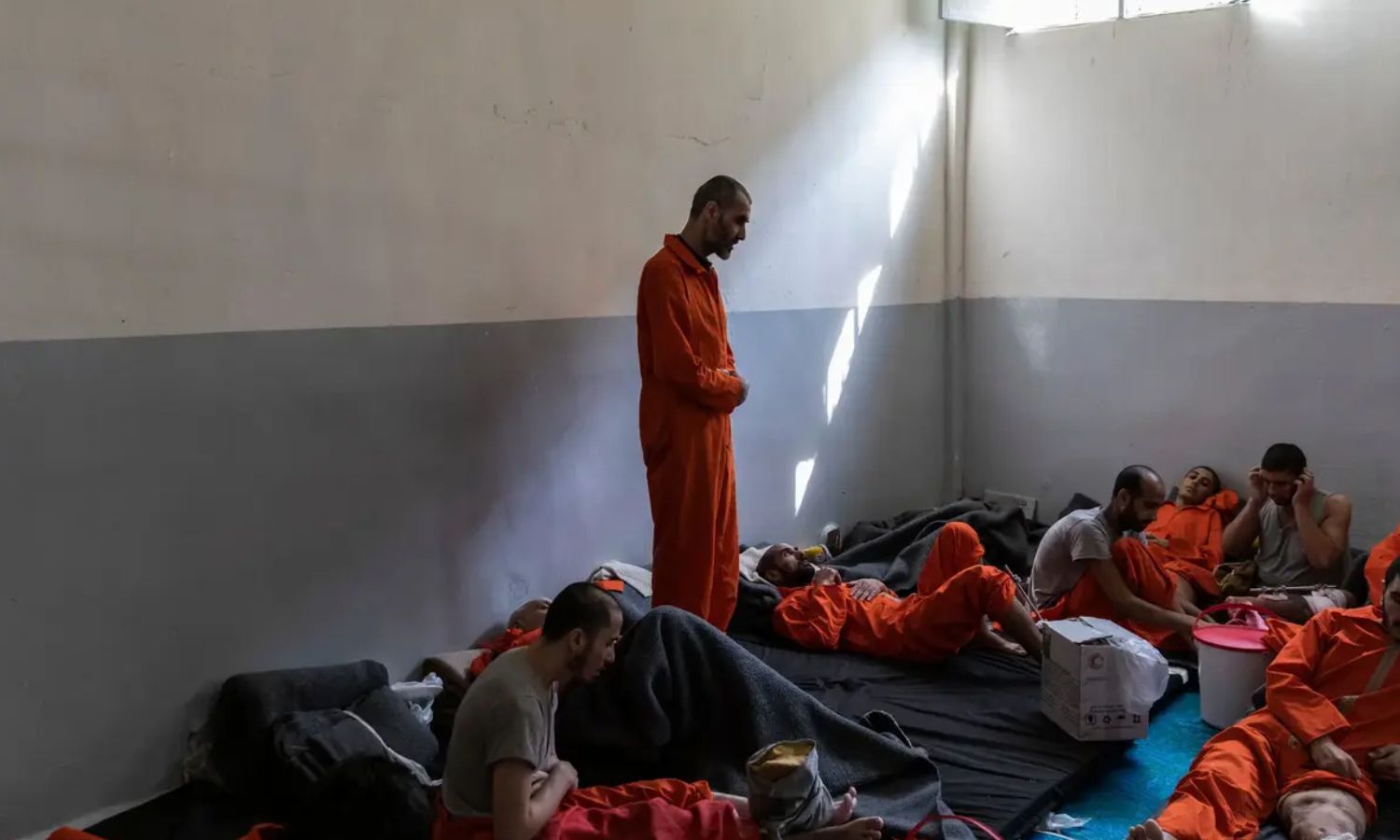
A prison in al-Hasakah where thousands of men are held for being accused of belonging to and fighting with the Islamic State group – 2019 (The New York Times)
|
The United States remains focused on repatriating detained foreign terrorist fighters to their areas or countries of origin to be rehabilitated, reintegrated, prosecuted, and held, as appropriate, for their crimes. US State Department |
Scenarios for the fate of prisoners
There is talk about the fate and future of IS prisoners amidst the complexities of the Syrian scene on the political and military levels, the lack of signs of a solution to end the file of the accused languishing in SDF prisons, and the repeated demands of the Autonomous Administration to return these people to their countries, and the return of fears of their escape every time Turkey hints at military action against the SDF.
Aron Lund, a fellow at Century International and Middle East analyst at the Swedish Defense Research Agency (FOI), believes that these prisoners will either be repatriated to their countries of origin if they are not Syrian or they will be tried in place.
Lund told Enab Baladi that the local authorities could do that, or there could be some kind of international tribunal, but the latter idea doesn’t seem to be getting anywhere.
The Middle East analyst expects that if prisoners are left in prison without any solution for many years, some of them will eventually escape or be released.
The area where the prisons are located could also fall under the control of some other power, most likely either the Syrian government, Turkey, or some combination of both, according to Lund.
|
The SDF-backed regional rule in northeastern Syria is brittle and depends on U.S. and, to some extent, Russian protection. If that protection is withdrawn, the Syrian government is likely to move in. Turkey might attack across the border, too. Aron Lund, a fellow at Century International and Middle East analyst at the Swedish Defense Research Agency (FOI) |
Do countries accept the trial of their citizens?
The director of the Syrian Justice and Accountability Center, Mohammad al-Abdallah, said that it is theoretically impossible for countries not to take a position on the trial of their citizens by a party that is not considered a state, as it requires taking a position on trials.
In fact, these countries have previously objected to the trials of their citizens by governmental parties, such as those that took place under the supervision of the central Iraqi government, which sentenced some foreign IS fighters and issued death sentences against them.
The French Foreign Ministry criticized the trials at the time, considering that they were “brief, immediate and lacking standards of justice,” and urged the Iraqi authorities not to execute these people and to reconsider the trials.
Iraq’s response was “very bad” for the French at the time, according to al-Abdallah, as it demanded that they take back their citizens who they refuse to be tried in Iraq and apply French rulings to them.
Al-Abdallah added that this example was between a European country and the Iraqi government, and what is happening today in northeastern Syria is that the party responsible for trials is not a recognized government.
Bassam al-Ahmad, Co-Founder and Executive Director of Syrians for Truth and Justice (STJ) believes that the West’s problem with trying its citizens who are affiliated with IS in Iraq is the death sentences issued against them there and not the idea of trying them.
|
According to international law, only recognized sovereign states have the authority to establish courts and administer justice within their territories, and in the case of the trial of foreign elements detained by the SDF, the jurisdiction rests with the courts of the country whose nationality the person holds, or the Syrian courts as the country that the crime occurred on its territory. Dr. Wissam Aldien Aloklah, a specialist in International Law |
Courts in cases of conflicts
Dr. Wissam Aldien Aloklah, a specialist in International Law, told Enab Baladi that holding trials during conflicts by any party, whether the SDF or others, must include a set of conditions, which are impartiality and independence.
For the court to be formed on a regular basis, in the sense that it meets the conditions existing within the state and that it is formed in the manner of the Syrian judicial courts, especially when talking about the Syrian case, which is considered a non-international conflict but rather a conflict within one country, he added.
One of the conditions of these courts is the presence of judges who are graduates of the Faculty of Law, and it is not permissible to bring in sheikhs or persons who are not qualified, as the judges must have previously served and applied the existing law before the conflict, i.e., the application of the Syrian law that was in force, and it is correct to apply another law, provided that it is not more severe on people than the previously enforceable.
Aloklah pointed out the need for these courts to apply legal guarantees, including the right to challenge decisions, the right to defense, the right of a person to hire a lawyer, the right to see evidence, and the right to hear witnesses.
if you think the article contain wrong information or you have additional details Send Correction
النسخة العربية من المقال
-
Follow us :












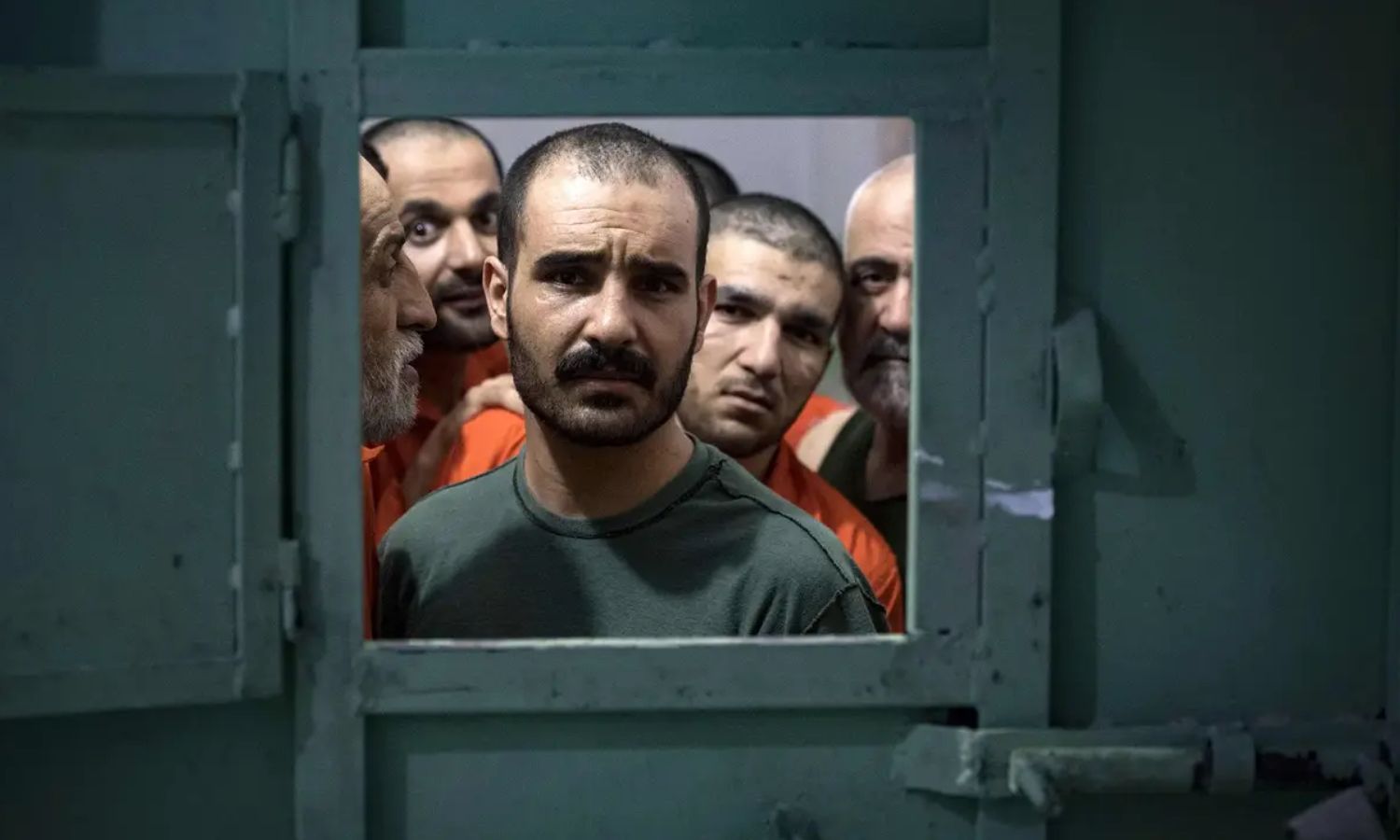
 A prison in al-Hasakah where thousands of men are accused of belonging to and fighting with the Islamic State (IS) group- 2019 (AFP)
A prison in al-Hasakah where thousands of men are accused of belonging to and fighting with the Islamic State (IS) group- 2019 (AFP)





 A
A
A
A
A
A
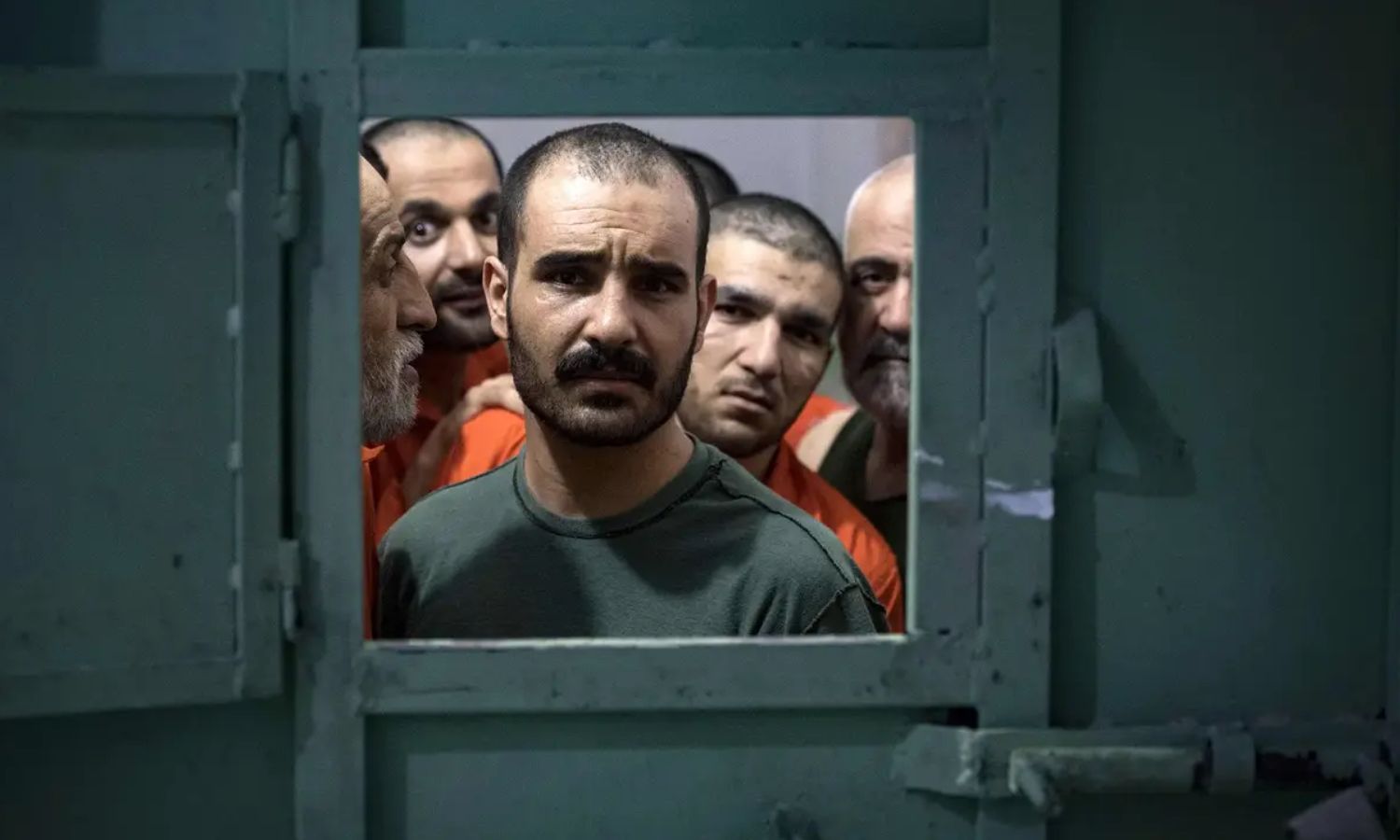


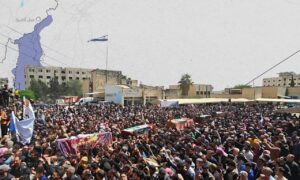




 More In-Depth
More In-Depth